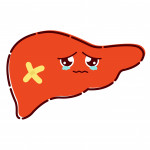European doctors have begun recruiting patients for an international trial of a new liver dialysis system, designed to remove bacterial toxins that accumulate in the blood during liver failure in order to lengthen individuals’ lives and potentially allow their livers to regenerate while waiting for a transplant, Eureka Alert reports.
Called DIALIVE, the device was invented by scientists and doctors at University College London and Royal Free London NHS Foundation Trust in the United Kingdom. Twenty-four patients will be included in this first trial, which is aimed at evaluating DIALIVE’s safety and performance. The study will take place at seven medical centers across Europe. Meanwhile, a second trial that plans to enroll more than 100 European individuals with end-stage liver disease in 2018 is already being designed.
The principles behind DIALIVE are based on recent advances in the understanding of the mechanisms driving liver failure — essentially that in people with advanced liver disease, bacterial products from the gut enter the blood and trigger a damaging immunological and inflammatory response. DIALIVE is designed to remove these toxins and replace damaged blood albumin with a fresh supply in order to increase the body’s natural defenses against these bacterial toxins and potentially allow the liver to regenerate.
Currently, the standard of care for patients experiencing liver failure is multi-organ support in an intensive care unit. Many patients require a liver transplant, but the shortage of donor organs in both Europe and the United States means that this is often not possible. In fact, according to designers of this preliminary trial, the new DIALIVE patient group has a greater than 25 percent likelihood of death within a 28-day period if they do not undergo a liver transplant or receive treatment.
The study, which was funded through a €6.4 million EU Horizon 2020 grant, also aims to apply data analytics to identify new biomarkers that can potentially be used to help optimize treatment protocols for liver disease patients. If the results show a successful outcome, researchers will seek regulatory approval for DIALIVE in 2019 or 2020.







Comments
Comments